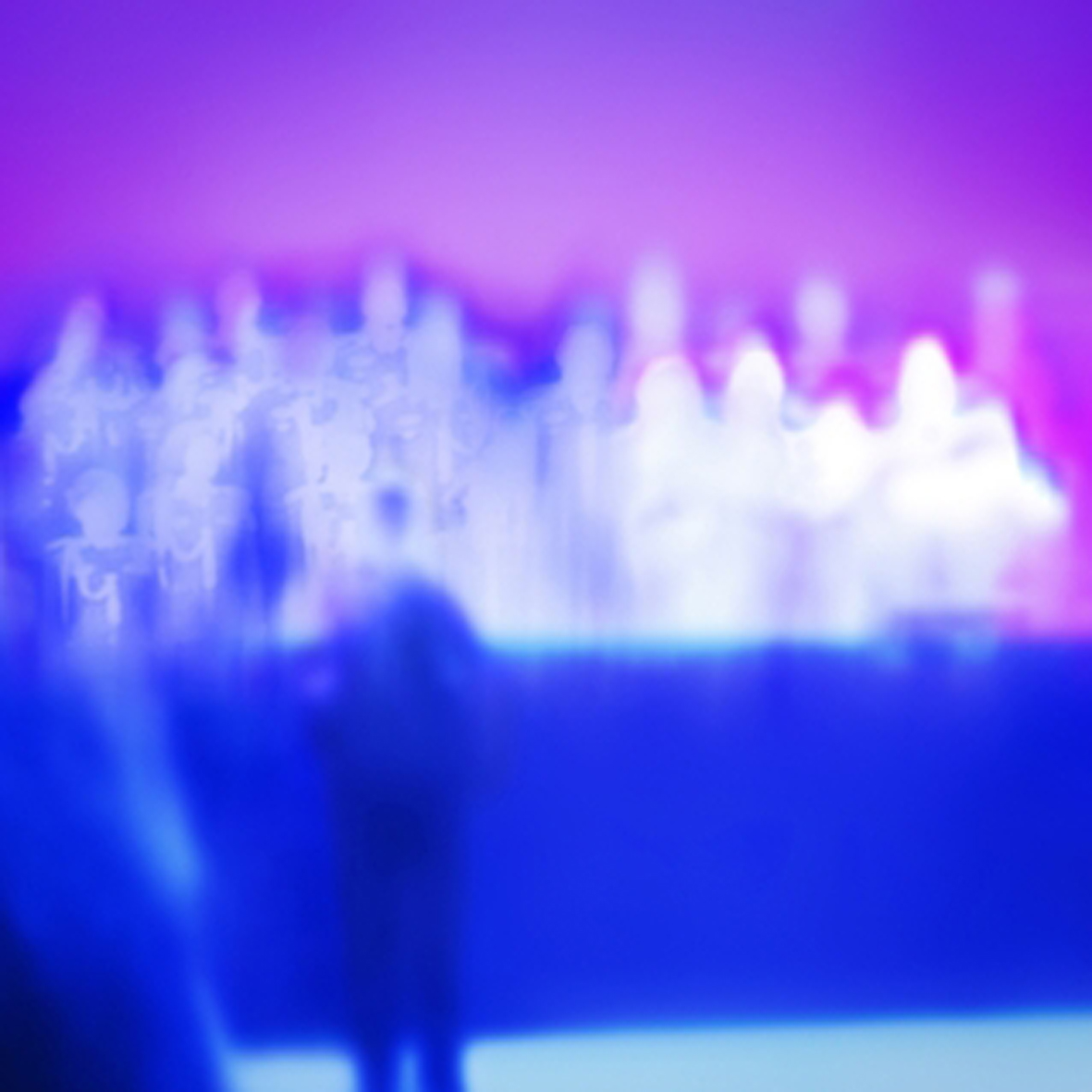Tim Hecker, "Love Streams"
 Tim Hecker’s first album for 4AD is already a major event, unexpectedly garnering praise from sources as mainstream as The New York Times and Rolling Stone.  We live in strange times indeed.  Naturally, it deserves all the accolades it gets, as Tim Hecker seems physically unable to make a disappointing album at this point in his career, but far more interesting than the quality is how Love Streams is such a conspicuous departure from many of Hecker’s usual tropes.  Also, despite its atypically high profile and widespread coverage, it may actually be the most perversely bizarre and experimental album that Hecker has yet released (My Love is Rotten to the Core excluded, of course).
Tim Hecker’s first album for 4AD is already a major event, unexpectedly garnering praise from sources as mainstream as The New York Times and Rolling Stone.  We live in strange times indeed.  Naturally, it deserves all the accolades it gets, as Tim Hecker seems physically unable to make a disappointing album at this point in his career, but far more interesting than the quality is how Love Streams is such a conspicuous departure from many of Hecker’s usual tropes.  Also, despite its atypically high profile and widespread coverage, it may actually be the most perversely bizarre and experimental album that Hecker has yet released (My Love is Rotten to the Core excluded, of course).
I am fairly sure that the first Tim Hecker album I ever picked up was Haunt Me, Haunt Me Do It Again, all the way back in 2001 or 2002.  I instantly fell in love with it, of course, but Hecker's work nevertheless fit very comfortably into a milieu that I was already quite immersed in: Oval, Fennesz, Pita, Jim O’Rourke’s laptop work, etc.  It was great, but not entirely revelatory.  As the years passed, I continued to dutifully buy each new Tim Hecker album, yet I found that I was increasingly in no hurry at all to get them as soon as they came out.  While I knew I would like them (they are almost all stellar albums), there was a creeping familiarity that dampened my ardor.  The reason that I bring this up is because that trend of diminishing returns unexpectedly reversed for me with 2011's Ravedeath.  Rather than being a reliable old friend, Tim Hecker transformed into an artist who was hell-bent on relentlessly moving forward and constantly reinventing himself.  Since then, each new album has been like Hecker hit a "reset" button on his career.  Granted, he still always sounds unmistakably like Tim Hecker (fuzzed-out, warm, richly textured, and pulsing), but there is a lot of room to move around within those confines.  On Love Streams, the twist is that Hecker has unexpectedly decided to focus on working with vocalists for the first time (in this case, an Icelandic choir).
If the languorous flutes in the opening "Obsidian Counterpoint" or the clipped, warbling vocals of "Music of the Air" sound suspiciously like classical or religious music, it is because that is exactly what they are…albeit in quite an altered state.  Love Streams partly originates from Hecker's interest in 15th century polyphonic composer Josquin des Prez.  Unusual grist for a contemporary experimental music album for sure, but the beauty of Hecker's artistry lies in how he ultimately decided to use des Prez's work to suit his own ends.  Using software called Melodyne, Hecker converted recordings of des Prez's pieces into sheet music, which he then edited to better fit his own aesthetic, lowering the pitch, slowing it down, and removing some unwanted notes.  The revised compositions were then presented to Jóhann Jóhannsson, who conducted the choir.  Jòhannsson then juggled the syllables of the Latin to strip the words of all meaning.  As if that was not enough, Hecker periodically chimed in with helpful instructions, such as urging vocalists to sing like a drugged Chewbacca.  It is hard to imagine a choir of hapless vocalists following such instructions sounding anything other than insane, but a finished Tim Hecker album presumably bears little resemblance at all to its source material: Love Streams has very much been ProTooled into sublime unrecognizability.  In fact, it is surprisingly subdued, given how tense and nerve-jangling its predecessor Virgins could get.  Hecker rarely bares his teeth at all here, aside from the seemingly randomized electric guitar in "Voice Crack," the gnarled distortion of "Black Phase," or the grinding, warped crescendo of "Collapse Sonata."  For the most part, Love Streams is just an immersive, heavenly blur that snatches of inspiration continually bubble through.
If Love Streams has a flaw, it is merely that it is rather lean on pieces that explode from the speakers and leave my jaw on the floor, which is surprising since Ben Frost was once again involved.  Nothing at all on this album comes close to matching the intensity of Virgin's best moments, though both "Music of the Air" and "Violet Monumental I" are both quietly gorgeous masterpieces.  I do not quite think that the album itself is a masterpiece though, despite being an exciting and ingenious late-career creative breakthrough: the strengths of Love Streams lie in its novel aesthetic and its dream-like, quasi-spiritual mood rather than in its compositions.  Naturally, that was a conscious choice and fits well with the celestial, processed voices and shimmering drones, but it makes much of the album feel like a diffuse reverie occasionally punctuated by bursts of melody or rare sharp edges.  While it all works beautifully, Hecker does not quite distill his new vision enough to make its maximum impact.  As a Tim Hecker fan, however, I am perfectly fine with that: I would much rather see him stretch into bold new realms and overreach a bit than watch him continue to perfect well-worn territory.



